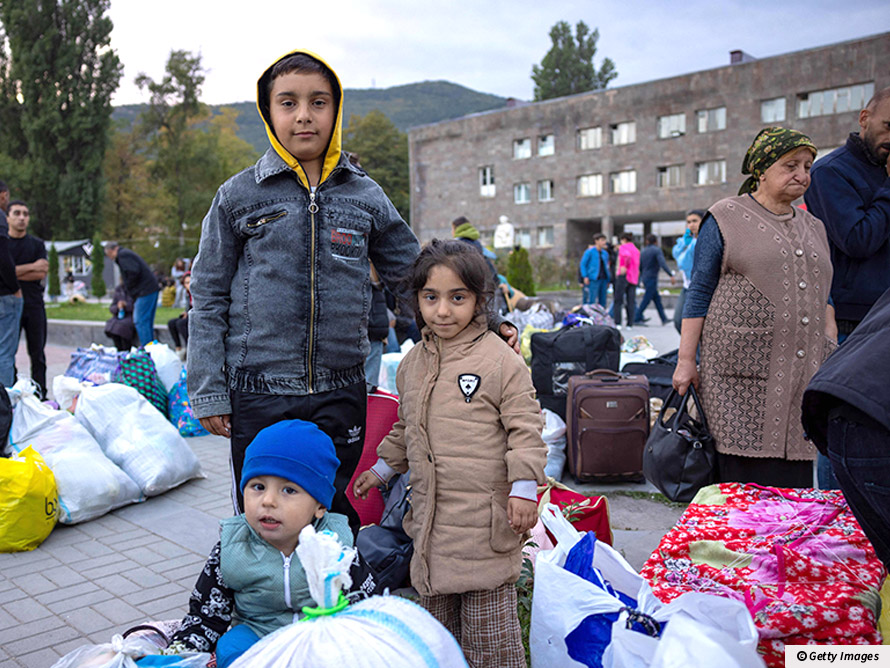Is world peace possible? A hundred thousand people have fled their homes. Everywhere we look there is more conflict. Some think a peaceful world has never looked more remote.
An invasion. Bombs. Over 100,000 new refugees

Glossary
Armenian - Armenia is a former Soviet republic in the Caucasus region between Asia and Europe.
Nagorno-Karabakh - A mountainous region of the South Caucasus. The area is disputed by Azerbaijan and Armenia.
Ethnic cleansing - The systematic forced removal from one area or killing of an ethnic group, with the aim of creating a region that is ethnically homogeneous.
Azerbaijan - A former Soviet Republic between the Caspian Sea and Caucasus mountains.
Azeris - A Turkic ethnic group mostly living in Azerbaijan.
USSR - The United Socialist Soviet Republic, the USA’s main rival in the Cold War before it collapsed and broke up into a number of smaller states in 1991.
Autonomous - Having the freedom to control itself or its life.
De facto - Something that happens in practice, in contrast to that which happens de jure, or according to the law.
Immanuel Kant - A German Enlightenment philosopher who is regarded as one of the most important thinkers of the modern era. He fundamentally changed the way we think about a variety of subjects, from aesthetics to cognition to morality.
Republican - Somebody who supports the idea of a country having an elected head of state, such as a president, rather than a hereditary king or queen.
